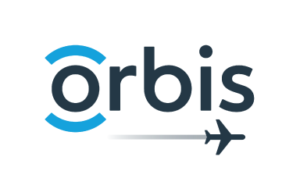How are you with risk taking? Are you generally risk averse, and like to build on successes gradually? Or are you a big creative ideas and let’s just get on with one of them kind of person?
Or does it depend on the project, challenge or area of your life? Or the experiences you’ve had with similar decisions in the past and how they’ve gone?
In life I’m naturally fairly risk averse. I’m not putting my life savings in bitcoin. If I’m at a loose end sometimes I just like to worry about things for no reason. I do like to consult before moving forward, but only when a decision is out of my area of expertise. Like getting the roof fixed or switching mortgages. If it’s a decision about my business that doesn’t impact many people, I’ll make a decision quick as you like. In fact I often need to slow myself down by putting some checks and balances in place.
Organisations develop their own culture around risk – some smaller and newer organisations have to take risks to grow. Some larger, more established organisations can retreat from risk as a way of maintaining the status quo – perhaps the fact they’ve been successful by doing things a certain way for a while. But the age or scale of any organisation doesn’t dictate it’s appetite for risk by any means, so let’s avoid sweeping generalisations.
What I’ve noticed recently is mine, and other peoples, time being drained and I think it’s due to this: a combination of having a risk averse culture, combined with tech that can automate decisions and communications and with silo-ed working – everyone sitting in their bubble and not talking to each other as much as they used to.
The symptom of this heady combination? Well here’s one example I’m seeing as a small business owner (and I’m seeing it a lot!):
Being asked by an automated email to fill in endless forms which aren’t relevant to the kind of work I do by a procurement system which applies the rules to everyone whether they are a multi-national supplier on a big scale or one leadership coach sitting in her house in Sheffield.
I’ve started batting back such things to actual humans and questionning their relevance on behalf of small business owners everywhere.
Think of the lost hours, for the organisaiton and for me?
I’ve heard examples of recruitment decisions being made without consulting the hiring manager (because a system does the matching), or processes completely falling down because we relied on a system and the system failed.
These are not symptoms of remote work – I know organisations which work remotely where everyone feels very connected and who communicate well, and I know hybrid working organisations where folk still struggle to pick up the phone and speak to someone.
My instinct is that this is more about technology and what it can do, versus what we ideally want to let it do (which are different.)
I’m also noticing that often, we feel under so much pressure that there’s just no time to talk.
So what’s the learning in all this? I’m sure there’s stacks, but here’s a starter for ten, and none of this is ground breaking or new:
- If we put in place a process, and we get feedback from its users, let’s reflect on that., especially if we’re using automation to deliver messages or make requests.
Example: I had feedback recently that the 2 day before reminder email of my coaching sessions that goes out to clients, doesn’t account for weekends so can sometimes land on a Saturday or Sunday. Now, we don’t want that, so I’m changing it to a ‘week before’ reminder so it will always land on a week day.
- If a decision impacts on a human, consider how best to involve that human. Obviously that depends on the level of impact the decision has. We don’t need to consult on everything.
- Let’s use the time we have with our colleagues face to face wisely and take every opportunity to build relationships with people whether both remotely and in person. Because that way it becomes easier just to pick up the phone or ping over a message and say ‘mate, I’m just not sure if I need to run this past someone in your team, what do you think?’
- Know that lack of autonomy can trigger stress for each of us. So, if you’re ‘sent’ a new recruit rather than feeling your voice has been heard in the recruitment process, that will not only feel stressful to you, but also possibly result in you feeling much less ownership of how successfully that appointment works out.


















